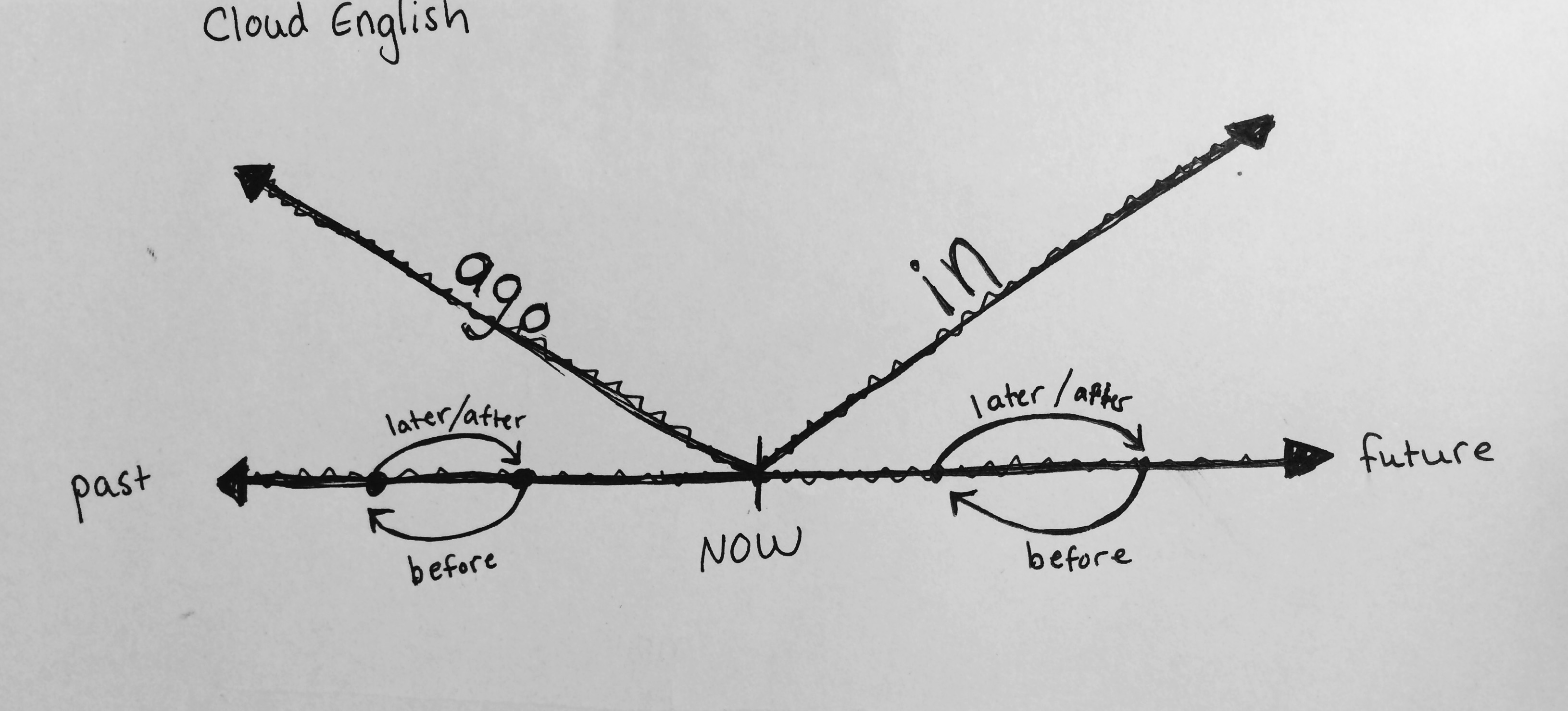A Common English Mistake: In, Ago, Before, After
Sep 24, 2022
Most English learners confuse the following four words:
- In
- Ago
- Before
- After
It’s difficult to pick which of the four will best fit a sentence that includes a reference to time.
Say if you have an upcoming meeting, how do you say that? Do you say you have a meeting in 20 minutes, or do you say you have a meeting 20 minutes later?
After you read this post, I believe you’ll be able to answer that on your own. Let’s get started!
What is the difference between in, ago, before, and after?
All four of these terms connect with a certain point in time or suggest a duration (how much time has passed from one point to another). We can divide them into two groups.
But before we get to it, imagine there’s a timeline of events that begins from the past and extends to the future. Now, imagine in the middle of this timeline, there’s a point that we call now. It represents the present moment, and we will understand the difference based on that.
To make it simpler, you can check it out on my blackboard in this video to get an idea about the timeline.
Group 1: In and Ago
In and ago always correspond to now. They are used to give a time reference in the future or in the past from the present moment.
For example:
- I have to leave in 20 minutes. I have a meeting.
- We have to leave for Colombia in a few weeks.
- In about two seconds, you will imagine a pink elephant standing on a yellow taxi.
- I don’t think I’ll be living here in two years.
- I’m leaving for India in a month.
- I need to go to the airport in an hour.
Notice that neither of the two sentences uses the word now. Instead, the use of the word in implies that the given reference of time is from now.
In the first sentence, we get the idea that “in 20 minutes” means 20 minutes from the present moment. Similarly, in the second sentence the use of the word in gives the idea that after a few weeks from now, the speaker will leave for Colombia.
Along the same lines, ago refers to a past point with respect to the present moment. For example:
- She told me she was going to quit about 20 minutes ago.
- A few weeks ago, we went to Colombia for vacation.
-
I got here about twenty minutes ago. I’ve been waiting in the lobby.
-
How many days ago was your birthday?
-
It was three days ago.
-
About 500 years ago, North America was discovered by Europeans.
-
Just a moment ago, I was thinking about a pink elephant standing on top of a yellow taxi.
It's clear that we're talking about something that has already happened. And we’re measuring time in relation to where we are in time RIGHT NOW.
Group 2: Before and After
Before and after always correspond to a certain point in time that could be either in the past or future. It can never be the present moment.
I highly recommend you see this at 5:05 in my video. It’ll help you visualize it better.
Here are a few examples:
- A few weeks before my 13th birthday, I broke my foot playing baseball.
- The day before we leave for Colombia, we need to pick up our visas from the consulate.
- About five years after graduating high school, I started having dreams about not graduating.
- Sixty years after the Vietnam war, the effects are still being felt.
As you can see, all of these sentences use the before or after with reference to a past or upcoming event. Remember, IN and AGO include the present, while AFTER and BEFORE don't.
That’s about it! I hope this post has helped clear your doubts about the four terms. If there are more questions, please drop them in the comments below. Check out my video on the topic for even more detail.






